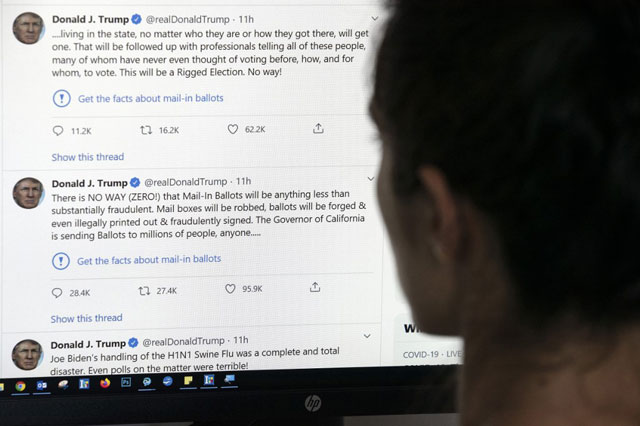
Furthermore, studies also show that when you put people of similar opinions in a common space for a discussion, they will reinforce each other’s biases, prejudices and convictions, pushing everyone to the extreme of their beliefs. However, when you put people of divergent views and values into a common space for discussion, participants tend to move towards the center of their opinions, thereby moderating their biases, prejudices and convictions. This is exactly the role traditional political parties and traditional media did. Social media does the exact opposite. Its greatest attribute is to mobilize the angriest. Moderates find limited traction.
The mistake has been to think that social media is a democratizing force. Yet it is a political tool that any group – whether anarchist or totalitarian, liberal or fascist, terrorist or otherwise can use to pursue its ends. These ends can be democratizing or seeking to undermine democracy. The problem is that because social media mobilizes the most extreme and angry voices, the most successful political groups on it are those that are radical, extremist and intolerant of divergent views i.e. anti-democratic.
The first democratic experiment in Western political development was the city state of Athens in 594 BC with the election of Solon as archon eponymous (ruler or lord). The democracy that ruled Athens for 190 years (ending with its defeat by Sparta in 404 BC) was a chaotic mess in large part because it was direct. Every Athenian male citizen could go to the assembly and vote on every issue. Victory went to the most eloquent taking the most extreme positions to win the hearts of the hoards.
Socrates, the leading Greek philosopher of the time, while defending the right to free speech strongly opposed democracy. He called it a government by a debating society that appealed to emotions as opposed to reason. He was sentenced to death by the democratic assembly. His most famous student, Plato, wrote the strongest denunciations of democracy, proposing a government by philosopher kings and later by dictators.
Modern democracy and its representative institutions like parliament elected through political parties moderated the passions of the masses. Social media has returned us to direct democracy and its results can be seen. It is breaking the power of traditional parties and mass media and with them, their gatekeeping role plus their moderating influence on the passions of the masses.
The election of Donald Trump in USA, Rodrigo Duterte in Philippines, Brexit, etc. are the first but not the last signs. The West will have to come to terms with this development and realize that what they consider to be a democratizing force could turn out to be the instrument that destroys democracy, at least as we have always known it.
****
amwenda@independent.co.ug
 The Independent Uganda: You get the Truth we Pay the Price
The Independent Uganda: You get the Truth we Pay the Price




You don’t explain how the naivety of liberals undermines democracy. You rightly observe, in my opinion, that the more stable governments tend to be centrist. If we look at the American example, both parties have tended to field centrist agendas until Mr. Trump (a conservative) walked in and swung the pendulum to the far right. Like you infer, trump exploited social media to sell unchecked lies like the birther conspiracies that built him a platform and later a political base. Some of the most nefarious online news sites like inforwars, breitbart?, q anon are all right. So much for liberal naivety